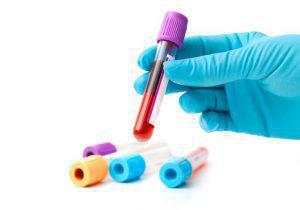A Blood Test For Concussions? The Truth.
 There was recent buzz about the FDA approving the first ever blood test for concussions. By definition, a concussion is an injury to the brain caused by a blow to the head that can result in a temporary loss of normal brain function.
There was recent buzz about the FDA approving the first ever blood test for concussions. By definition, a concussion is an injury to the brain caused by a blow to the head that can result in a temporary loss of normal brain function.
This blood test claims to determine if a person suffered a concussion based on a blood test that measures the blood plasma levels of two proteins: UCH-L1 and GFAP. Both of these proteins are released at elevated levels following a concussion or any other traumatic brain injury.
While this may help identify a small portion of concussion cases, it will not diagnose or rule out concussions just because there is no sign of elevated levels of UCH-L1 and GFAP. This is because concussions can solely be symptomatic meaning that neurologically and structurally everything can look normal, but a person may present signs and symptoms of a concussion. These can include headaches, dizziness, light sensitivity, slurred speech, sleep disturbance, and more. This blood test is helpful for ER doctors who are determining whether or not to give a patient a CT scan. CT scans, however, also do not diagnose concussions. CT scans search for bleeding in the brain, but no evidence of a brain bleed does not rule out a concussion.
The biggest benefit this blood test may have is avoiding unnecessary CT scans that are ordered by physicians. This would spare patients from any exposure to radiation. Currently the diagnosis of a concussion is more clinical and is based on a physician’s interpretation of test results and symptoms. At Alliance Orthopedics we can not just help determine if you have a concussion but help with treatment and get you back on your feet as you recover! We will make returning to work, play, or school as safe as possible. Treatment for concussions at NJSW includes:
- Manual Therapy– It is important to address any neck injury that may have been suffered in the violent movement that caused the concussion. Manual therapy often includes massaging spasmed muscles and mobilizing stiffened neck joints.
- Physical and Vestibular Rehabilitation – Physical therapists will prescribe corrective exercises for strength and endurance based on the level of symptoms being experienced. Vestibular training will additionally work to restore normal balance and coordination. Eventually the patient will be able to safely return to their sport or activity.
- Ergonomic Assessment – An employee’s workstation should be ergonomically designed to minimize the risk of injury and maximize productivity. Sometimes, workplace setups can actually be making your concussive symptoms worse!
- Postural Re-education – Posture is always key. Restoring proper neck and shoulder posture following a concussion can help relieve any neck pain associated with the incident.
- Nutritional Changes – Dietary changes should be made to promote healing. This is done through eating natural, healthy foods that can assist with decreasing inflammation throughout the body.The most accurate way to assess a concussion is by making sure a baseline test is done prior to sport or activity, then comparing the results with a post-concussion re-examination. Our concussion program includes the following evaluations:
ImPACT Testing
• ImPACT Testing – This is a computerized test that measures your brain’s neurocognitive ability before and after an injury. While we can’t predict when a concussion would be suffered, ImPACT tests are recommended for athletes or people who work in an environment where head injuries may possibly occur.
- BESS Test– Balance Error Scoring System is a physical test that assesses postural stability (balance)
- BESS TestSAC Test – Standardized Assessment of Concussion detects changes across multiple domains of cognitive functioning (orientation, immediate memory, delayed recall, external maneuvers) that are susceptible to the immediate effects of concussions.When a concussion is sustained, every element of this testing is re-examined to properly assess the situation. From there, we can customize a return-to-play (or activity) protocol, to make sure the patient safely returns to their normal life. The Alliance Orthopedics concussion team always closely monitors concussion cases even after the patient is discharged. Call today to schedule your concussion baseline test!